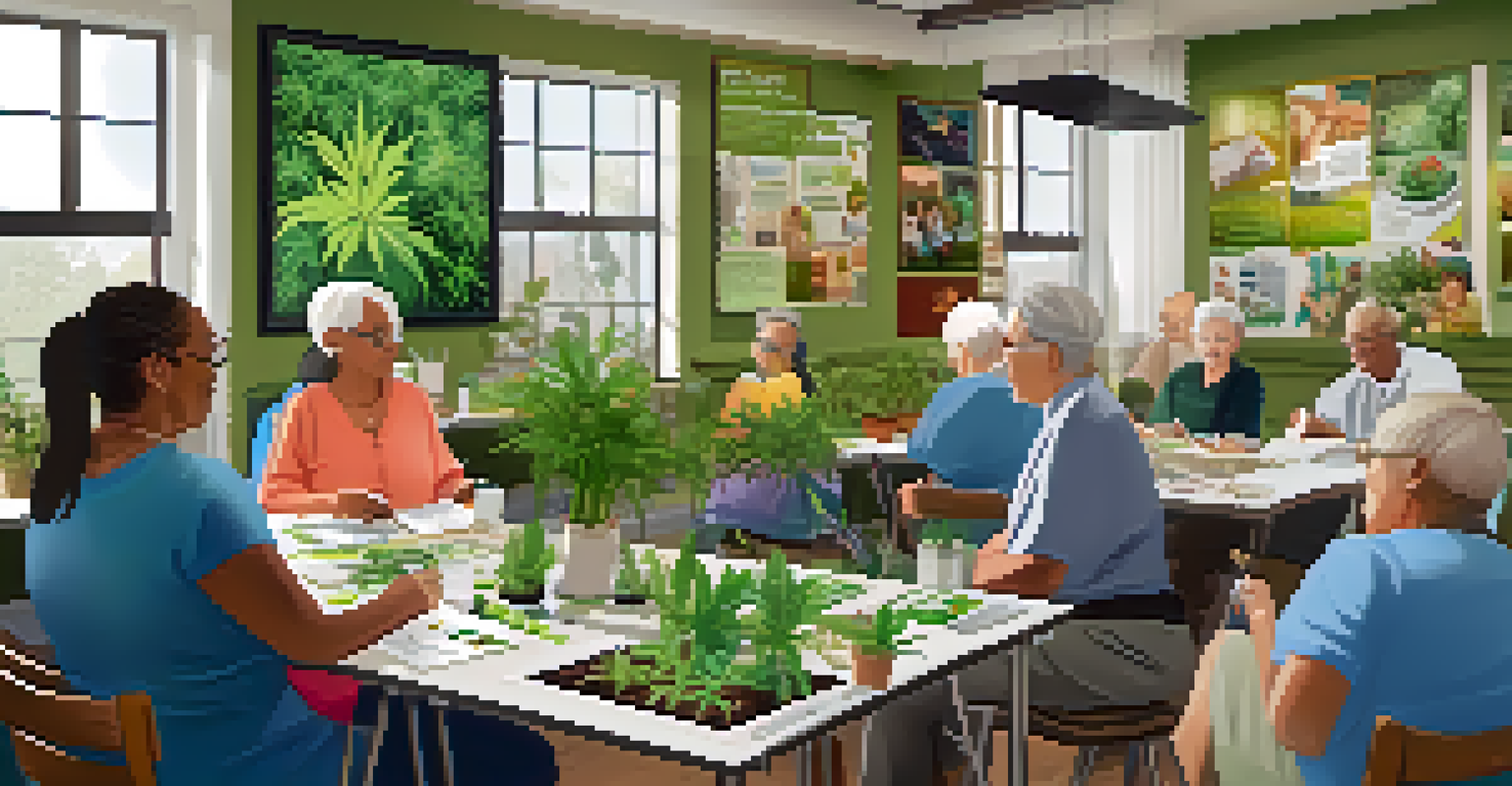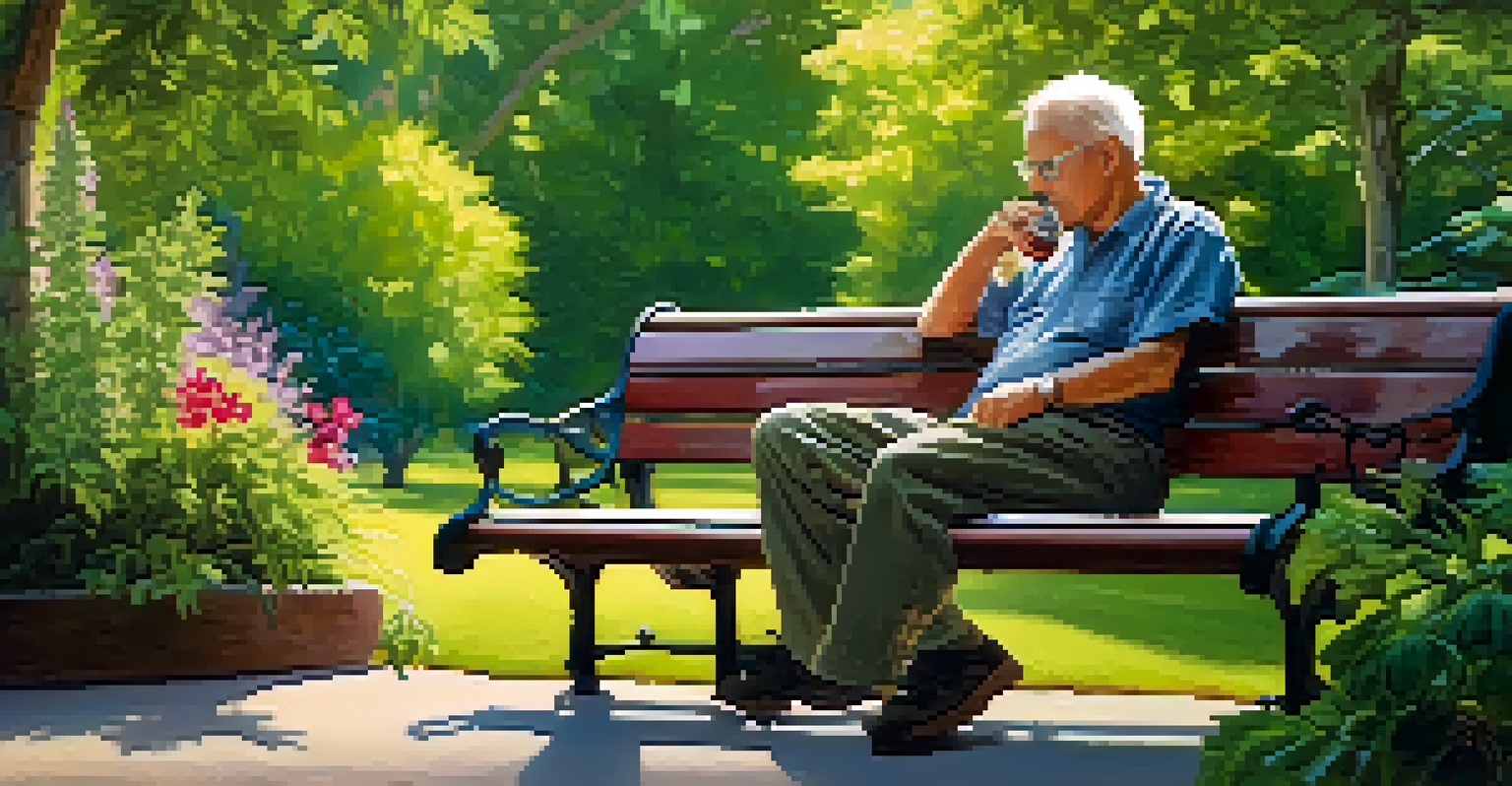Changing Perceptions of Cannabis Among Older Generations

Historical Stigma: The Roots of Cannabis Misunderstanding
For decades, cannabis was shrouded in stigma, especially among older generations. Many grew up in an era where the plant was demonized, often associated with illegal activity and moral decay. This backdrop created a strong reluctance to consider cannabis as a legitimate option for wellness or recreation.
The greatest danger of cannabis is that it might be legal and thus become a normal part of life, just like alcohol and tobacco.
In many cases, this stigma was fueled by misinformation and sensationalized media portrayals, which painted cannabis users in a negative light. Consequently, many older adults formed their views based on fear rather than facts. As a result, cannabis remained a taboo subject in many households, leading to a generational divide in its acceptance.
However, recent shifts in legislation and the rise of research around cannabis' medicinal benefits are beginning to change this narrative. As more states legalize cannabis, older adults are starting to question their long-held beliefs, opening the door to new possibilities.
The Role of Medical Cannabis in Changing Attitudes
One of the most significant factors in altering perceptions is the introduction of medical cannabis. Many older adults are facing chronic pain, arthritis, and other ailments that traditional medicine may not address effectively. The prospect of finding relief through cannabis has led many to reconsider their stance on the plant.

For instance, studies show that seniors are increasingly turning to cannabis for pain management and anxiety relief. This shift is not just anecdotal; research backs up these claims, providing scientific evidence that cannabis can be beneficial for various health issues. As older generations witness firsthand the positive effects, their views begin to shift.
Stigma Surrounding Cannabis Eases
The historical stigma around cannabis is slowly fading as older generations reconsider their views due to changing laws and increased awareness.
Moreover, conversations around cannabis have become more open, allowing older adults to share their experiences and learn from one another. This community dialogue fosters understanding and reduces stigma, paving the way for broader acceptance.
Cultural Influence: The Impact of Younger Generations
Younger generations play a crucial role in reshaping perceptions of cannabis among their elders. As cannabis becomes more normalized in society, younger individuals are often more open about their use and the benefits they experience. This openness can spark curiosity and discussion among older adults who may be considering trying cannabis for the first time.
What we need is not the prohibition of cannabis, but a clear understanding of its benefits and risks.
Family dynamics also come into play, as younger family members educate their elders on cannabis. Whether it's a grandchild discussing the potential benefits or a child's decision to use cannabis responsibly, these interactions can help demystify the plant. This generational dialogue is vital in breaking down age-old misconceptions.
Additionally, popular culture, including media representation and celebrity endorsements, has contributed to a more positive image of cannabis. This cultural shift encourages older adults to see cannabis in a new light, fostering acceptance and curiosity.
Legalization Trends and Their Effects on Perception
As more states move towards cannabis legalization, older generations are witnessing a tangible change in their environment. The increasing legal status of cannabis often leads to a shift in perceptions, as it becomes less associated with crime and more with responsible use. This shift can encourage older adults to explore cannabis without the fear of legal repercussions.
For instance, states that have legalized cannabis have seen a rise in educational programs aimed at informing the public about its benefits and responsible use. These initiatives help dispel myths and provide factual information, making it easier for older adults to make informed decisions.
Medical Benefits Drive Acceptance
Many older adults are turning to medical cannabis for chronic pain and other ailments, prompting a shift in perception as they witness its positive effects.
Moreover, legalization has also led to the establishment of regulated dispensaries, providing a safe and controlled environment for older adults to access cannabis. This professional setting can instill confidence, making it more likely for seniors to explore cannabis options they may have previously dismissed.
Personal Stories: Seniors Share Their Cannabis Experiences
Hearing personal stories can be incredibly powerful in shifting perceptions. Many older adults have begun sharing their own positive experiences with cannabis, from alleviating pain to enhancing their overall quality of life. These testimonials serve as real-life examples that challenge the stigma surrounding cannabis use.
For instance, a 70-year-old woman might share how cannabis helped her manage her arthritis pain when traditional medications failed. Such stories not only resonate with others facing similar issues but also encourage more seniors to consider cannabis as a viable option for relief.
These narratives create a sense of community, allowing older adults to connect over shared experiences. As more seniors come forward with their stories, it helps normalize cannabis use and fosters a supportive environment for those curious about its benefits.
Education: Bridging the Knowledge Gap About Cannabis
Education is key to changing perceptions of cannabis among older generations. Many seniors may lack accurate information about cannabis, leading to fear and misconceptions. By providing clear, accessible education, we can empower older adults to make informed choices about their health and wellness.
Workshops, online resources, and community events focused on cannabis education can be highly effective. These initiatives can help demystify the plant, covering topics such as its medicinal properties, potential side effects, and safe consumption methods. The more knowledge seniors gain, the more likely they are to feel comfortable exploring cannabis.
Younger Generations Educate Elders
Younger family members play a vital role in demystifying cannabis for their elders through open conversations and shared experiences.
Additionally, healthcare providers play a crucial role in this educational process. By discussing cannabis openly and providing guidance, doctors can help bridge the gap between traditional medicine and alternative therapies, encouraging a more holistic approach to health.
The Future: A New Era for Cannabis Acceptance
As perceptions of cannabis continue to evolve, we can anticipate a future where older generations embrace the plant more openly. The combination of legalization, education, and personal experiences is driving this change, leading to increased acceptance and understanding. This trend may pave the way for cannabis to be seen as a valuable tool for health and wellness.
Moreover, as more research emerges highlighting the benefits of cannabis, older adults may feel more empowered to explore its potential. This could lead to a cultural shift where cannabis is integrated into everyday health discussions, much like other wellness practices.

Ultimately, the journey toward acceptance is ongoing. With continued dialogue and education, older generations can reshape their views on cannabis, leading to a more inclusive and understanding society.